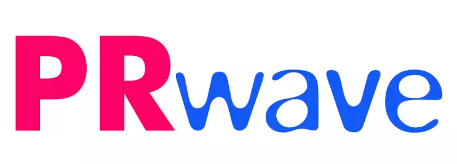The Ethical Debate
For some, buzz marketing raises not just strategy questions, but serious ethical issues as well. In most cases when marketers talk about buzz marketing ‘agents’ they mean regular citizens who have volunteered to be product guinea pigs — people who receive no financial compensation, but do get products in advance of their release to the general public in exchange for a promise to talk them up if they like them, and to provide feedback to companies about what they and others think. Sometimes, however, marketers blur these lines in their effort to create buzz, hiring actors to pose as Average Joes, similar to what Sony Ericsson did to promote one of its digital cameras.
Actions like these raise the question of whether there is something inherently unethical about buzz marketing itself. After all, even those ‘buzz agents’ who are not monetarily compensated do receive free products in exchange for their services, and few freely admit their status as agents to the people they are buzzing to. For some, the ethical question amounts to just a vague twinge of discomfort when they realize a friend’s excitement over a new product is part of an orchestrated corporate effort to create buzz on the street. For others, it raises the specter of a paranoid future where corporate marketers have invaded every last niche of society, degrading all social interaction to a marketing transaction, where no one can be certain of anyone else’s true opinions or intentions.
Wharton marketing professor Lisa Bolton is one of the hard-liners in the buzz marketing ethics debate. "I realize not all buzz marketing is subversive. Sometimes it’s just a case of getting people on the street and getting the word out. But stealth marketing, where you don’t know that something’s part of a marketing campaign because people don’t identify themselves as such? I thinks it’s wrong. It’s unethical. Over the long term, when people find out, they will feel deceived and betrayed. Ultimately, it will damage a company’s brand equity."
Bolton, who teaches consumer behavior at Wharton, recently discussed buzz marketing in her class. During the discussion several students identified themselves as buzz agents for various boutique marketing companies; some were currently aiding buzz marketing efforts for everything from forthcoming books to new consumer products. Most students were intrigued by the idea of buzz marketing, and few said they perceived any ethical conflict. "They claim that they only act as buzz agents for products they truly like; therefore, they aren’t lying when they praise them. They seem to focus on what they are saying, not why they are saying it," Bolton says.
Still, the students don’t identify themselves as agents unless directly asked and this is what makes the difference, according to Bolton. "Whenever the buzz agent doesn’t identify himself upfront as a marketer, the customer interaction is deceptive and, therefore, unethical. Research in psychology suggests that consumers are more readily persuaded when they do not know that the other person is trying to persuade them. By not revealing their persuasive intent, the buzz agent is gaining an unfair advantage that undermines social interaction. We usually assume that other people, in ordinary discourse, are not trying to sell us something; when we know we are being marketed to, we can raise barriers to try and protect ourselves," she says.
Bolton’s students changed their tune a bit when she proposed this scenario for them to consider: "At one point I said, ‘So John, you’re sitting in a bar and a cute girl chats you up and you’re feeling like ‘Oh wow, this attractive person is talking to me.’ It’s only after she’s gone that you find out it’s a marketing ploy. Suddenly they said, ‘Yeah, I’d feel pretty bad, [like I had been] taken advantage of’. Because now they are the victim."
Wind disagrees. "I don’t see any ethical problem as long as the company provides the product to a person and that person is totally independent in terms of saying whatever they feel about the product to the customer. If we say, ‘Here’s the product and here’s what to tell people,’ then you’re not allowing them to really express themselves. That’s when it undermines credibility," Wind says. "Consumers are more sophisticated than people give them credit for. Buzz marketing is like sampling; it’s simply providing exposure to the product. You’re not forcing them to buy anything; you’re just exposing them to it. They are not stupid. They will try it and if they like it, they will do more research and maybe buy it themselves. It’s useful. If they don’t like it, they won’t buy it."
Besides, adds Wind, relying on word-of-mouth marketing may actually force companies to create better products. "Research shows that negative word-of-mouth is seven times more powerful than positive word-of-mouth. This really forces people to have good products. Otherwise, when you turn people loose to say whatever they want, you could be in real trouble."
"In the end it’s about cutting through the clutter," says Bolton. "When everyone starts to do buzz marketing, it will just add to the clutter. Then it will be about whoever has the most unique or effective campaign, whether it’s a buzz campaign or not. It will be about what works. The rest is just noise."
Sursa: //knowledge.wharton.upenn.edu/
Articole recomandate:
Exclusive Interview with ShiSh Shridhar, Microsoft: I foresee several exciting developments in the r...
Interviu cu ChatGPT despre avantajele și limitele lui, despre marketing, relații publice și multe al...
Yoana Boyanova, VMware Bulgaria - I’m inspired by the people around me - how they think and behave a...
Interviu în exclusivitate cu Răzvan Andrei - redactor-șef Editura Publisol: "Cartea tipărită e la pu...
Scrisoare pentru juniori
Scurt istoric al evoluției Strategic Planning-ului în cadrul agențiilor de publicitate din România, ...
În România nu există scriitor de succes, doar scriitor cunoscut (III)
The Brand IS the Strategy



